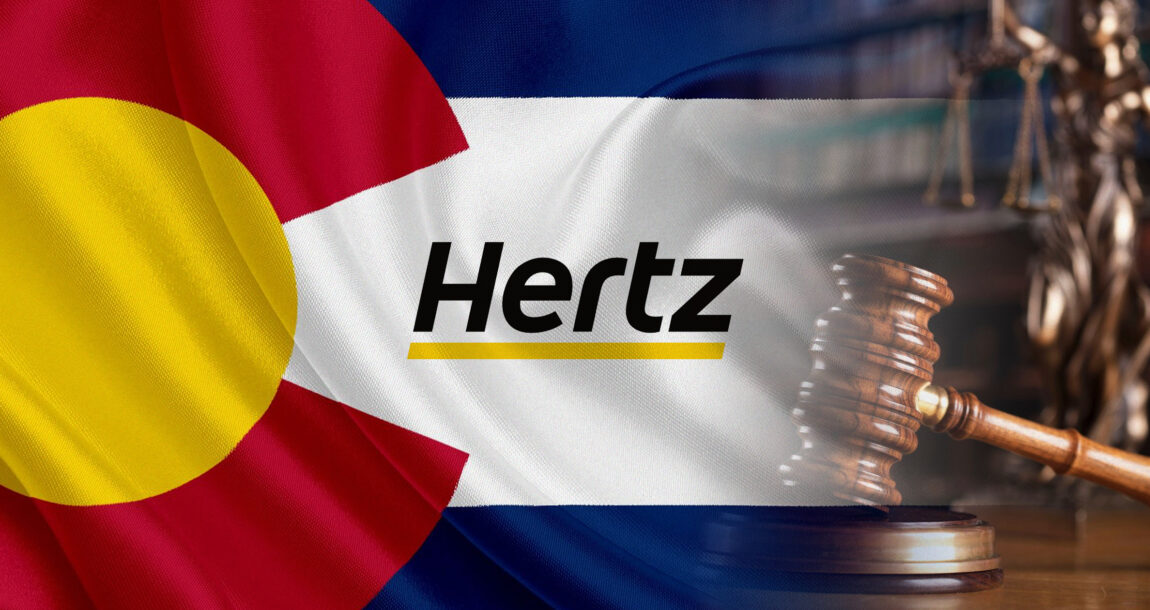Colo. lawsuit: Does Hertz qualify as an insurer?

When reading over the agreement for renting a car you check the box for optional insurance offered by the rental company, which you believe will then be liable for any claims filed as a result of an accident with the vehicle.
Well, not so fast. The rental company denied two Colorado men injured while riding in an auto rented from Hertz compensation for medical expenses, despite the driver having accepted the standard and optional uninsured/underinsured coverage in the rental agreement. The men, Stanislav Babayev and Oleg Chikov, then sued Hertz contending breach of contract and bad faith as Hertz, they believed, had assumed the role of insurer and was thereby subject to the state’s insurance laws.
Not so, says Hertz. The giant company claims it is neither an actual nor a de facto insurer, and that the insurer was CHUBB Ace American Insurance Company, and any claims are managed by a third party under a risk management services agreement. The district court sided with Hertz.
"The inclusion of an opt-in provision for insurance coverage does not make the rental agreement an insurance policy," wrote Denver District Court Judge Alex C. Myers in 2022. "Hertz is not obligated to pay benefits to plaintiffs (or anyone) under the CHUBB policy — that duty remains with CHUBB."
Decision's logic is challenged
On appeal, the plaintiffs challenged the logic in that decision. Lawyers for the pair pointed out, among other things, that the rental agreement never mentioned Chubb; that the claims adjuster in testimony referred to the claim as "their case" — meaning Hertz's; a letter from Hertz's attorney repeatedly cited Hertz's own "evaluation" of the case, and Hertz needed to approve large-dollar claim payments.
"This rental agreement does not say 'we will get insurance' or 'we will list you as an additional insured driver' or anything of that sort," plaintiffs' attorney, Nelson A. Waneka, told the appellate panel. "They were involved in the entire process and they're responsible for cutting those checks at the end of the day."
Now the case is in the hands of justices at Colorado’s Supreme Court, which will decide if rental car companies offering insurance coverage can be considered insurers, thereby subjecting them to the same legal duties and potential liabilities as traditional insurance providers. This case highlights the legal complexities surrounding the responsibilities of rental car companies when they offer insurance products to their customers and could have national repercussions depending on the outcome.
'Hertz performed' traditional insurance role
"Hertz performed roles traditionally assigned to insurance carriers, such as determining authority on the case, and the amount of uninsured motorist benefits owed and disputed,” said attorney Olga Y. Steinreich, of the Colorado Trial Lawyers Association, which intervened in the case on the plaintiffs' behalf. “By undertaking those functions, Hertz became subject to claims."
The appeals court relied on an earlier case, Passamano v. Travelers Indemnity Co., which held that a motor vehicle rental company offering insurance coverage for a specified price qualifies as an “insurer” under Colorado law. Despite statutory changes clarifying that rental car agencies do not have to offer UM coverage, the court found that Hertz, by voluntarily providing coverage, qualified as an insurer.
“The court, in effect, concluded that non-insurers, such as claim adjusting services, become de facto insurers if they perform the functions of an insurer and have a financial incentive to limit an insurer’s claims,” said Levin.
Plaintiffs Babayev and Chikov were passengers in a rental car and were injured in a hit-and-run accident when a van collided with their car and fled. It is unclear if CHUBB acted on any claims and attempts to reach representatives there were unsuccessful. Hertz said it offered the pair a settlement which was rejected as insufficient. Hertz maintains it only offers customers insurance as a service and is not involved in actual administration or claims.
However, the risk management agreement, which involved another company, provided that claim payments were Hertz’s obligation, and the claim adjuster’s testimony suggested that Hertz had some involvement in adjusting and administering the plaintiffs’ claim.
© Entire contents copyright 2024 by InsuranceNewsNet.com Inc. All rights reserved. No part of this article may be reprinted without the expressed written consent from InsuranceNewsNet.com.
Doug Bailey is a journalist and freelance writer who lives outside of Boston. He can be reached at [email protected].






National Life: plaintiff promotes ‘odd theory’ in IUL lawsuit over 0% return
Social Security Fairness Act increases need for financial advice
Advisor News
- 2025 Top 5 Advisor Stories: From the ‘Age Wave’ to Gen Z angst
- Flexibility is the future of employee financial wellness benefits
- Bill aims to boost access to work retirement plans for millions of Americans
- A new era of advisor support for caregiving
- Millennial Dilemma: Home ownership or retirement security?
More Advisor NewsAnnuity News
- Great-West Life & Annuity Insurance Company Trademark Application for “EMPOWER BENEFIT CONSULTING SERVICES” Filed: Great-West Life & Annuity Insurance Company
- 2025 Top 5 Annuity Stories: Lawsuits, layoffs and Brighthouse sale rumors
- An Application for the Trademark “DYNAMIC RETIREMENT MANAGER” Has Been Filed by Great-West Life & Annuity Insurance Company: Great-West Life & Annuity Insurance Company
- Product understanding will drive the future of insurance
- Prudential launches FlexGuard 2.0 RILA
More Annuity NewsHealth/Employee Benefits News
Life Insurance News
- Baby On Board
- 2025 Top 5 Life Insurance Stories: IUL takes center stage as lawsuits pile up
- Private placement securities continue to be attractive to insurers
- Inszone Insurance Services Expands Benefits Department in Michigan with Acquisition of Voyage Benefits, LLC
- Affordability pressures are reshaping pricing, products and strategy for 2026
More Life Insurance News